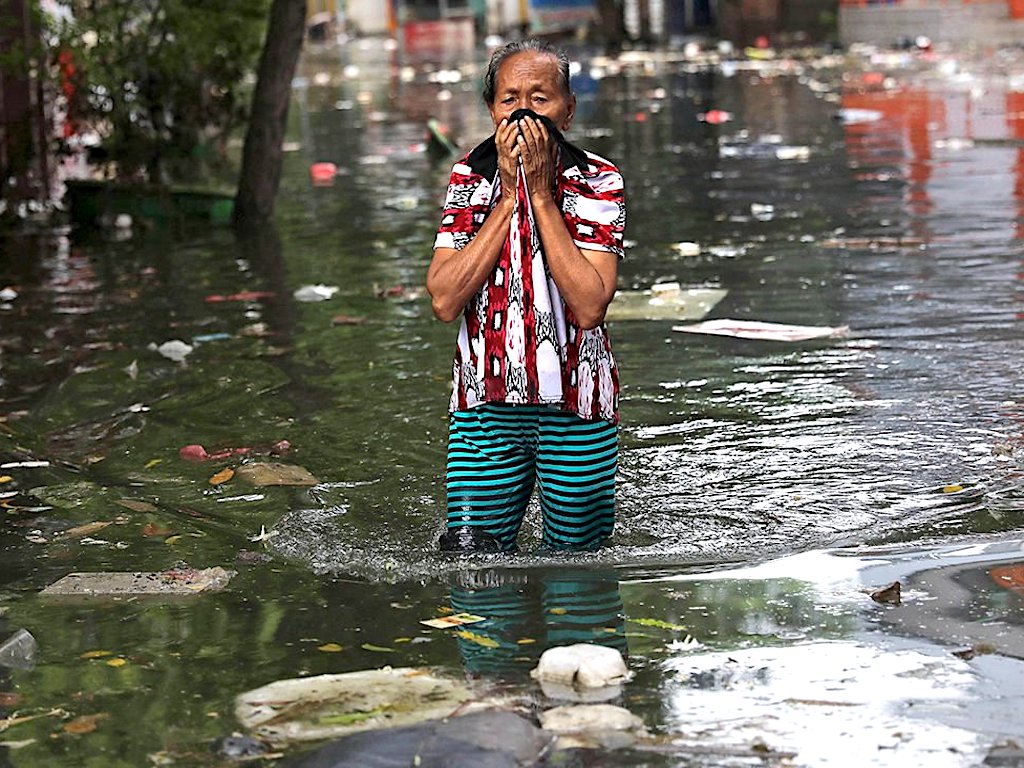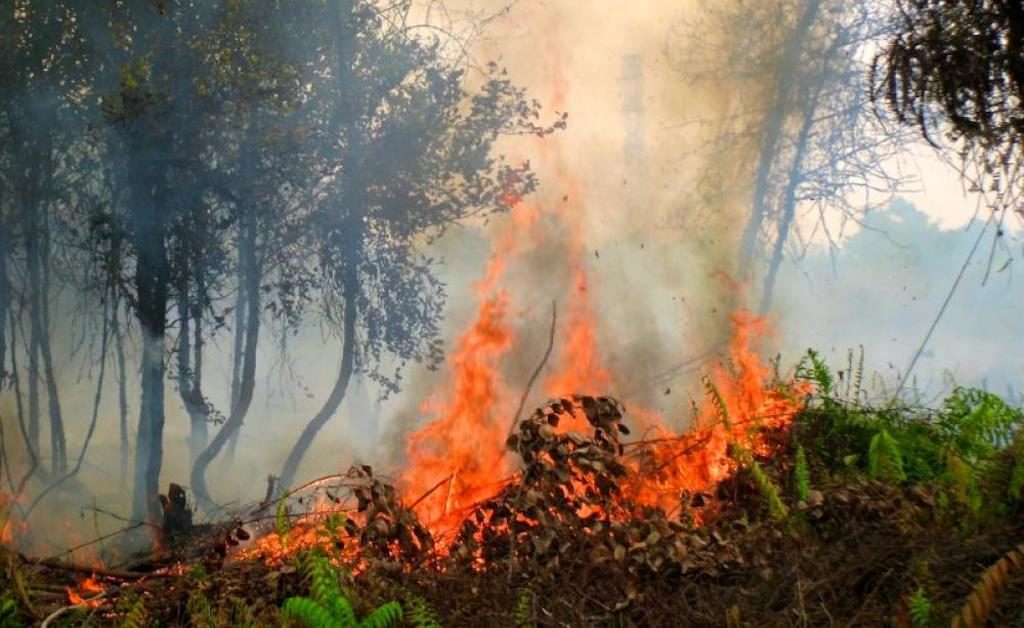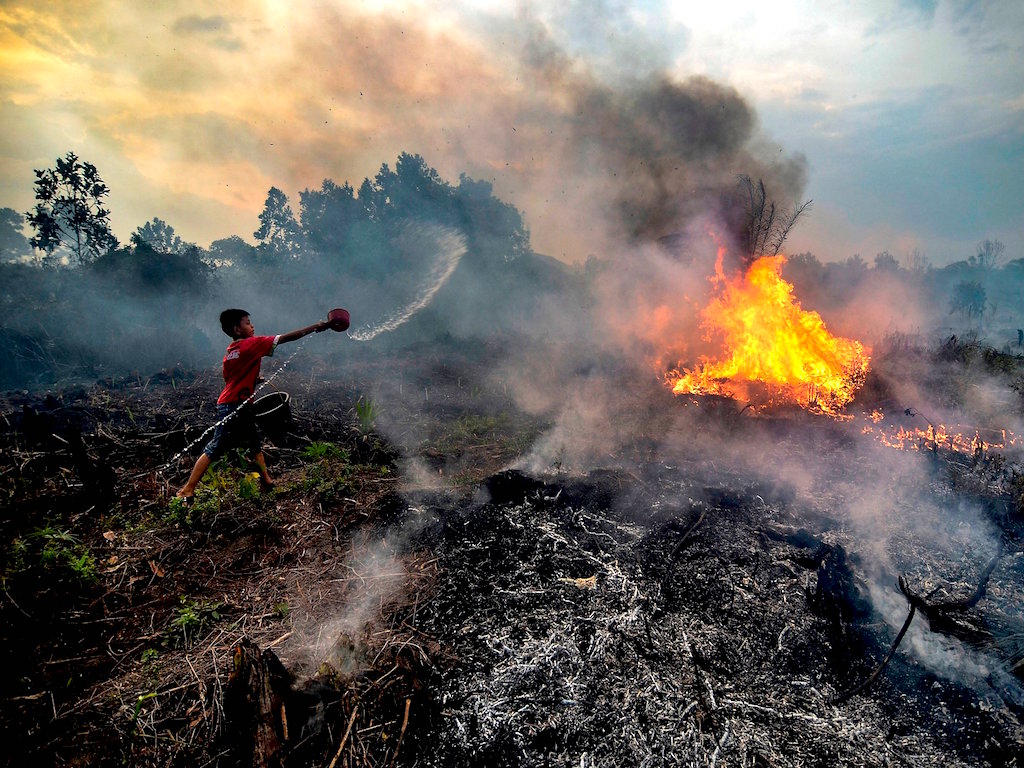4 Mins Read
The administration of President Joko Widodo in Indonesia is currently pushing a slate of environmental deregulation policies through proposing over 1,200 amendments to 80 existing laws in parliament. While the government claims that these policies will boost the country’s economic growth, experts are warning that they will threaten to dismantle the already small number of existing protections against environmental destruction in Indonesia, paving the way for more climate disasters. The country has already been inundated with a number of devastating climate-induced events, from deadly flooding to deforestation and disappearing glaciers.
The Indonesian government is preparing to submit to parliament two new bills with over 1,200 proposed amendments to 80 laws, claiming that they will help attract investment and boost the stagnant economic growth that the country has experienced since 2014. However, experts and climate activists have pointed out that many of these changes will involve deregulating crucial conservation and environmental protection laws, in blatant neglect of the intensifying climate emergency and the threat it poses to socioeconomic and physical security.
Because President Widodo’s ruling government coalition currently controls around 75% of seats in parliament, it is unlikely that these bills will be heavily scrutinised or blocked. The administration stated that they are expecting the new bills to pass within 100 days of submitting them.
One of the most controversial proposed changes pushed by Widodo’s administration is to loosen the current requirements for corporations to carry out environmental impact analysis. Under the existing law, the practice – locally called Amdal – ensures that companies must obtain the environmental permit assessing for potential conservation and health risks from the environment ministry or local authorities before any project is allowed to go ahead.

Given that Indonesia is a country already prone to natural disasters and its geography makes it particularly vulnerable to the negative impacts of the climate crisis, removing environmental assessments before development projects go ahead will likely further exacerbate the chances of facing more disasters in the future. Just earlier in January, Jakarta weathered extreme flooding and landslides, killing at least 67 people and displacing over 170,000 people from their homes.
Climate campaigners and scientists have attributed the severity of the disaster to not only the escalating climate emergency that has brought about more extreme weather patterns, but the ongoing deforestation and environmental damage caused by developmental projects built in violation of existing regulations.
Some experts have pointed out that environmental deregulation would, in fact, be counterintuitive and hamper economic development in the longer term because climate uncertainties could ward off investors. Henri Subagiyo, the former executive director of the Indonesian Center for Environmental Law (ICEL), explained to Mongabay that “if [environmental protections] are ignored, then there will be environmental risk for the businesses themselves. Amdal actually protects businesses from legal threats.”
Other concerning draft amendments include scrapping criminal charges for companies who violate environmental regulations, downgrading the punishment to merely revoking business permets, and limiting public participation and opinion on proposed developmental projects, effectively shutting out communities from exercising their right to voice their concerns about potential effects to their health and surrounding environment.
Perhaps one of the most damaging deregulatory policies in the pipeline is to remove the current law that regions have to maintain a minimum 30% forest area in their territory, which will effectively pave the way for further deforestation in the country. The Indonesian fires made headlines last year after it spread a huge blanket of smoke and haze across Southeast Asia, burning off crucial carbon-absorbing forests that hold the key to fighting global heating.

Most of the fires in wiping out forests in Indonesia have been deliberately started to clear land for palm cultivation, and in the process, has released millions of tonnes of carbon dioxide emissions into the atmosphere. According to the Global Fire Emissions Database, just a few months of the Indonesian fires in 2019 produced enough greenhouse gases to match the total emissions of the United Kingdom in an entire year.
As 2019 came to a close, the World Bank estimated that the fires will cost the country at least US$5.2 billion in economic losses and damage, an example that taking away crucial environmental protection laws in the name of boosting the economy could lead to the opposite result, not to mention the devastating human security, health and climate consequences that also follow.
While climate mitigation and resilient policies may seem costly in the short-term, and deregulating ecological conservation laws may appear to draw in investment in the meantime, recent research has revealed the reality of the balance sheet given the severity of the climate crisis. Using modelling data, scientists in Potsdam have confirmed that any further delay to climate action will bring about massive economic costs, and the cheapest option available to the world is to fight the crisis.
Unfortunately, despite the available data evidencing the bigger costs incurred by ignoring climate change, Indonesia is not alone in their plans to further fuel the most pressing issue our planet faces. Recently, Japan revealed their plans to build 22 new coal-burning facilities within the next 5 years, in opposition to residents and activists who have criticised the disruption the coal plans will have on the much needed push towards clean energy.
Lead image courtesy of Wahyudi / AFP / Getty Images.




